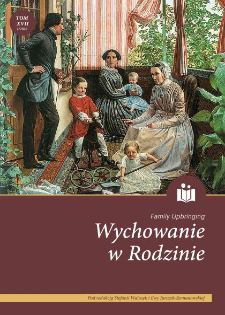Formy pomocy rodzinom żołnierzy podczas I wojny
światowej – Łódzkie Kuratorium Obywatelskie
nad Rodzinami Rezerwistów
Forms of aid provided to families of soldiers during the World
War I – Łódź Citizen Social Agency for Families of Reservists
Author(s): Joanna SosnowskaSubject(s): History, Social Sciences, Education, Sociology, Social history
Published by: Zakład Historii Edukacji w Instytucie Pedagogiki Uniwersytetu Wrocławskiego
Keywords: World War I (1914–1918); families of reservists; welfare services for Łódź families; forms of aid provided to families of soldiers
Summary/Abstract: Just after the World War I had started, people tried to provide aid to residents of villages, towns, settlements in the area affected by the conflict, who were not involved in the war directly but experienced the difficulties of the war-time existence every day. People who were most exposed to the consequences of the fights included children and their families, also those families whose fathers went to fight on the front as reservists. The institution which took care of such families in Łódź was called Łódzkie Kuratorium Obywatelskie nad Rodzinami Rezerwistów. It was established as early as at the beginning of the war, in August 1914, under the regulations adopted two years earlier by the Russian Ministry of Internal Affairs. The task of Kuratorium was to verify the material situation of families and to provide the necessary support. Aim. The main aim of this paper is to present the activity of Łódzkie Kuratorium Obywatelskie nad Rodzinami Rezerwistów during the World War I. It mainly refers to different types of aid and care of soldiers’ families, including child care. Methods. The historical-pedagogical research was conducted by using the source analysis method, which consists of finding facts and their general sense in the context of research questions. Results. Kuratorium provided aid in the city in two forms. Mainly, it included monetary benefits granted to adults (mothers and closer relations) and children, which bought, most of all, food, medicines, and fuel. The other form of aid consisted in providing reservists’ children, orphans and half-orphans with places in orphanages or shelters in Łódź or at the children’s relations. Conclusions. As the source documentation indicates, in April and May 1916, the official registers of people authorised to receive the money distributed by Łódzkie Kuratorium Obywatelskie nad Rodzinami Rezerwistów listed over 16 thousand families of reservists conscripted into the Russian army. Provided types of aid (financial subsidy, institutional care) turned out to be effective. During the World War I Families of Reservists in Łódź could count on systematic support.
Journal: Wychowanie w Rodzinie
- Issue Year: XVII/2018
- Issue No: 1
- Page Range: 33-50
- Page Count: 18
- Language: English, Polish

